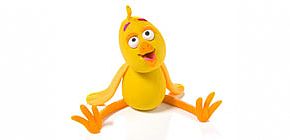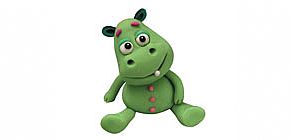Fever reducing medication, a humidifier to relieve stuffy noses and creams to treat the skin - everything you should have in your infant’s toiletry closet.
Winter’s on the Way: How Can You Protect Your Infant?
Caring for your infant during the cold season can be slightly more complex, and the need to keep them warm and healthy requires a little advance planning. Today, we’re answering your most frequently asked questions about keeping warm:
Do you need to give your infant a bath every day in the winter?
It’s recommended to bathe your infant daily, even in winter, as baths calm and cleanse the skin. Ensure that the room as warmed to 23 degrees and that the water’s temperature is pleasantly set at approximately 37 degrees. It is customary to test the water by dipping your elbow inside the bath. If the water is pleasant to the touch of your elbow, it will be pleasant to your infant’s skin as well.
How should you warm your home and your infant’s room?
The main drawback of the more common home and room heating devices is that they dry out the air. Dry air can irritate the airway, which, in turn, encourages runny noses and phlegm to emerge. As such, it’s a good idea to use a cool air humidifier together with your heater, and to stay away from heaters that have not been proven to be safe, such as a gas stove, blow heater, etc., as they can cause burns. In addition, it is important to ensure that the room is pleasantly heated, but not too hot. The ideal temperature for an infant’s room is between 22 and 23 degrees.
Should you open windows (even when it’s raining outside)?
Yes, even for a short period of time while your infant is out of the room. Ventilation is particularly important during the winter months, when it’s easier to contract viruses and bacteria from house guests and visitors.
How should you dress your infant in the winter?
Contrary to popular thought, infants aged one month and older can regulate their body temperature on their own. In addition. Overdressing limits mobility and causes sweating, which cools the body. As such, it’s a good idea to dress your infant in just one more layer than you’re wearing. So, if you’re comfortable wearing a thin, long-sleeved shirt at home, dress your infant in a thin undershirt and long-sleeved shirt.
A few useful tips:
- Choose warm, breathable materials, like cotton or flannel
- Infants lose the majority of their body heat via their heads, so have them wear a hat on cold days
- Ensure that the room is pleasantly warmed to a temperature of 23-24 degrees
- Dress infants in socks or footed pants
- Choose clothes that are easy to put on and take off
Should you take your infant outdoors?
Trips outdoors are important to your health - and your infant’s. During the winter, there is a tendency to spend lots of time in closed off rooms, and so it is important to venture outdoors and breathe in the fresh air. Of course, it goes without saying that if it’s stormy outside, you can wait until the skies clear, but on most winter days, you can dress appropriately and head outside. It’s a good idea to avoid heavily populated or closed places.
What should you do if your infant has a runny nose?
Colds and blocked noses are the body’s way of naturally responding to the infiltration of viruses or other infectants into the airway. The infant’s immune system is still immature, leading them to catch more colds than older children and adults.
Here are some useful tips for dealing with infant colds:
- Ventilate the home and your infant’s room multiple times a day.
- Take your infant to the doctor, to ensure that it’s just the common cold, and not some other respiratory illness.
- Roll a towel or blanket and place it under the top portion of your infant’s mattress, to create an incline. The incline will keep mucus from dripping down your infant’s throat while they sleep, preventing a cough from developing.
- Help your little one breathe easier, by dripping some saline into their nose. It will dry their mucus and is safe to use from birth.
- Relieve skin redness by avoiding wiping noses with rough paper and apply a calming gel, like Taftafim Afgel, to their nose.
Recommended baby gear to get you through the winter:
Essential equipment:
- Warm clothing that can be layered, including a coat (full body suit is preferred), hat, gloves, socks and footed pants. It is recommended to choose clothes that are easy to put on and take off, when entering and exiting heated spaces.
- A warm, good quality blanket for bed and stroller.
- Hand sanitizer for adults who come into contact with your infant.
- Warm or cool air humidifier
- Heater for your home and bathroom: radiators and air conditioners are considered safest.
Recommended equipment:
- Protective cover for your infant’s car seat or stroller (bunting, sleeping bag).
- Moisturizer to prevent dry skin.
- Flannel diapers: More pleasant than tetra diapers during the winter months.
Luxury items:
- A warmer for your wipes.
- Infant room thermometer.
- Bath water thermometer.
HomePage Elements
Skip HomePage Elements


.jpg)
.jpg)
.jpg)
.jpg)



.jpg)
.jpg)
.jpg)
.jpg)

.jpg)

Contact us